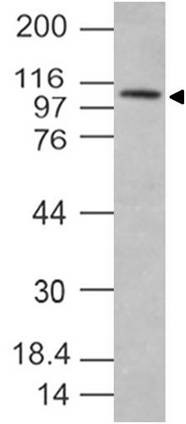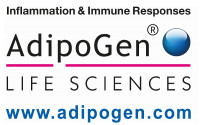Cookie-Einstellungen
Diese Website benutzt Cookies, die für den technischen Betrieb der Website erforderlich sind und stets gesetzt werden. Andere Cookies, die den Komfort bei Benutzung dieser Website erhöhen, der Direktwerbung dienen oder die Interaktion mit anderen Websites und sozialen Netzwerken vereinfachen sollen, werden nur mit Ihrer Zustimmung gesetzt.
Konfiguration
Technisch erforderlich
Diese Cookies sind für die Grundfunktionen des Shops notwendig.
"Alle Cookies ablehnen" Cookie
"Alle Cookies annehmen" Cookie
Ausgewählter Shop
CSRF-Token
Cookie-Einstellungen
FACT-Finder Tracking
Individuelle Preise
Kundenspezifisches Caching
Session
Währungswechsel
Komfortfunktionen
Diese Cookies werden genutzt um das Einkaufserlebnis noch ansprechender zu gestalten, beispielsweise für die Wiedererkennung des Besuchers.
Facebook-Seite in der rechten Blog - Sidebar anzeigen
Merkzettel
Statistik & Tracking
Endgeräteerkennung
Kauf- und Surfverhalten mit Google Tag Manager
Partnerprogramm

| Artikelnummer | Größe | Datenblatt | Manual | SDB | Lieferzeit | Menge | Preis |
|---|---|---|---|---|---|---|---|
| AG-20T-0303-C100 | 100 µg | - |
3 - 9 Werktage* |
446,00 €
|
Bei Fragen nutzen Sie gerne unser Kontaktformular.
Bestellen Sie auch per E-Mail: info@biomol.com
Größere Menge gewünscht? Bulk-Anfrage
Bestellen Sie auch per E-Mail: info@biomol.com
Größere Menge gewünscht? Bulk-Anfrage
TLR4 (Toll-like Receptor 4) is a member of the Toll-like receptor (TLR) family which plays a... mehr
Produktinformationen "Anti-TLR4 (human), clone ABM19C4"
TLR4 (Toll-like Receptor 4) is a member of the Toll-like receptor (TLR) family which plays a fundamental role in pathogen recognition and activation of innate immunity. It was the first TLR identified TLR in mammals and most studied member of the TLR family. TLR4 recognizes the active lipid A component of lipopolysaccharide (LPS) from Gram-negative bacteria in conjunction with LY96 (also referred to MD-2), CD14 and LPS-binding protein (LBP) and consequently mediates the innate immune response to bacterial lipopolysaccharide (LPS). Additionally, it is also involved in LPS-independent responses triggered by endogenous DMAPs, such as heat shock proteins (HSPs) or HMGB1. TLR4 signals via MYD88, TIRAP and TRAF6, leading to NF-kappaB activation, cytokine secretion and the inflammatory response in various cell types. In complex with TLR6, it was shown to promote sterile inflammation in monocytes/macrophages in response to oxidized low-density lipoprotein (oxLDL) or amyloid-beta 42. TLR4-mediated inflammation, triggered by exogenous or endogenous ligands, is involved in several acute and chronic diseases, having a pivotal role as amplifier of the inflammatory response. The potency with which this TLR activates inflammatory pathways makes it an ideal target for therapeutic intervention and adjuvant development. A broad range of clinical studies have examined the adjuvant activity of TLR4 activators in vaccines against infectious and tumor antigens. Protein function: Cooperates with LY96 and CD14 to mediate the innate immune response to bacterial lipopolysaccharide (LPS). Acts via MYD88, TIRAP and TRAF6, leading to NF-kappa-B activation, cytokine secretion and the inflammatory response (PubMed:9237759, PubMed:10835634). Also involved in LPS-independent inflammatory responses triggered by free fatty acids, such as palmitate, and Ni(2+). Responses triggered by Ni(2+) require non-conserved histidines and are, therefore, species-specific (PubMed:20711192). Both M.tuberculosis HSP70 (dnaK) and HSP65 (groEL-2) act via this protein to stimulate NF-kappa-B expression (PubMed:15809303). In complex with TLR6, promotes sterile inflammation in monocytes/macrophages in response to oxidized low-density lipoprotein (oxLDL) or amyloid-beta 42. In this context, the initial signal is provided by oxLDL- or amyloid-beta 42-binding to CD36. This event induces the formation of a heterodimer of TLR4 and TLR6, which is rapidly internalized and triggers inflammatory response, leading to the NF-kappa-B-dependent production of CXCL1, CXCL2 and CCL9 cytokines, via MYD88 signaling pathway, and CCL5 cytokine, via TICAM1 signaling pathway, as well as IL1B secretion. Binds electronegative LDL (LDL(-)) and mediates the cytokine release induced by LDL(-) (PubMed:23880187). Stimulation of monocytes in vitro with M.tuberculosis PstS1 induces p38 MAPK and ERK1/2 activation primarily via TLR2, but also partially via this receptor (PubMed:16622205). [The UniProt Consortium]
| Schlagworte: | Anti-TLR4, Anti-CD284, Anti-hToll, Anti-Toll-like receptor 4 |
| Hersteller: | AdipoGen Life Sciences |
| Hersteller-Nr: | AG-20T-0303 |
Eigenschaften
| Antikörper-Typ: | Monoclonal |
| Klon: | ABM19C4 |
| Konjugat: | No |
Datenbank Information
| KEGG ID : | K10160 | Passende Produkte |
| UniProt ID : | O00206 | Passende Produkte |
| Gene ID | GeneID 7099 | Passende Produkte |
Handhabung & Sicherheit
| Lagerung: | -20°C |
| Versand: | +4°C (International: +4°C) |
Achtung
Nur für Forschungszwecke und Laboruntersuchungen: Nicht für die Anwendung im oder am Menschen!
Nur für Forschungszwecke und Laboruntersuchungen: Nicht für die Anwendung im oder am Menschen!
Hier folgen Informationen zur Produktreferenz.
mehr
Hier kriegen Sie ein Zertifikat
Loggen Sie sich ein oder registrieren Sie sich, um Analysenzertifikate anzufordern.
Bewertungen lesen, schreiben und diskutieren... mehr
Kundenbewertungen für "Anti-TLR4 (human), clone ABM19C4"
Bewertung schreiben
Loggen Sie sich ein oder registrieren Sie sich, um eine Produktbewertung abzugeben.
Zuletzt angesehen








